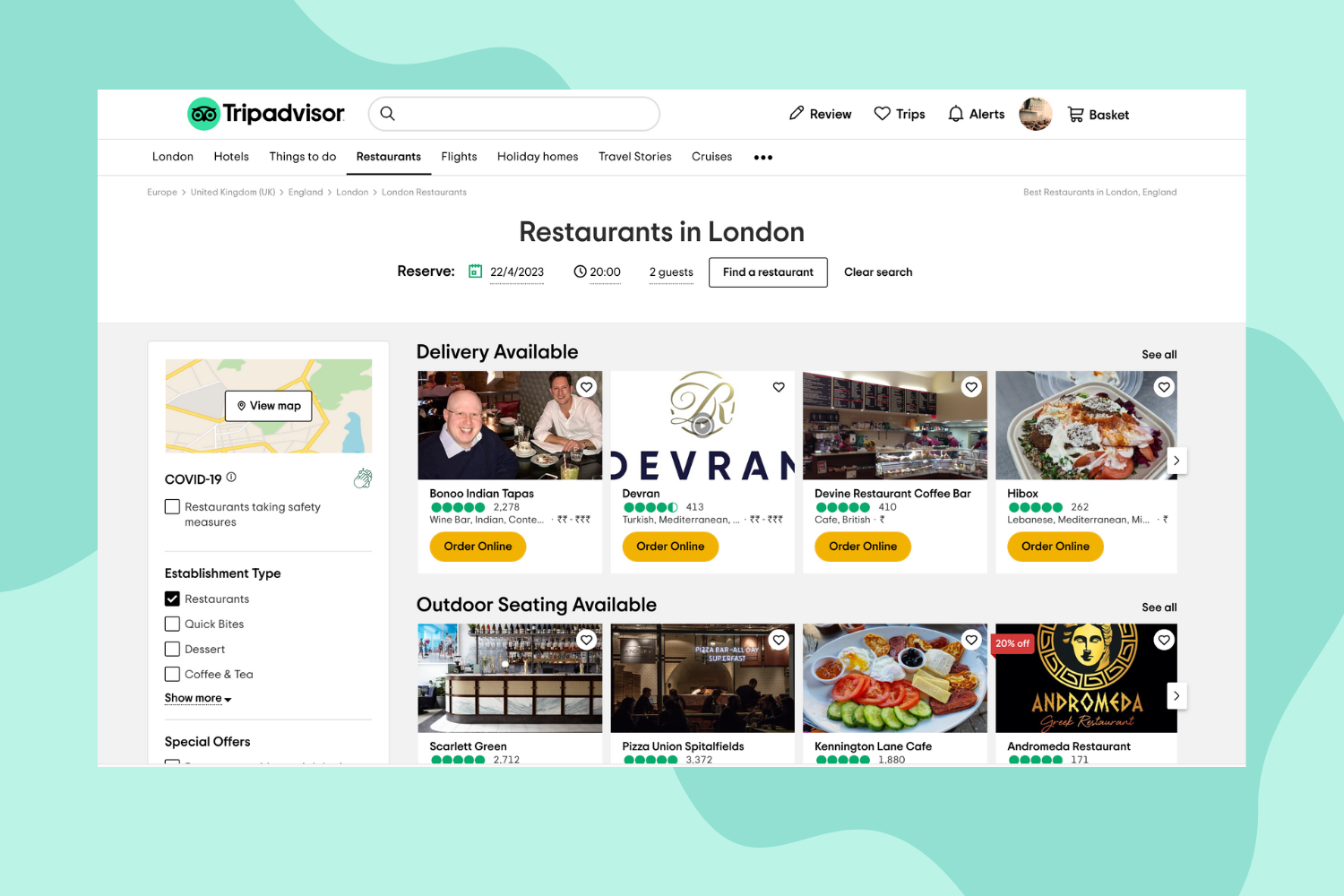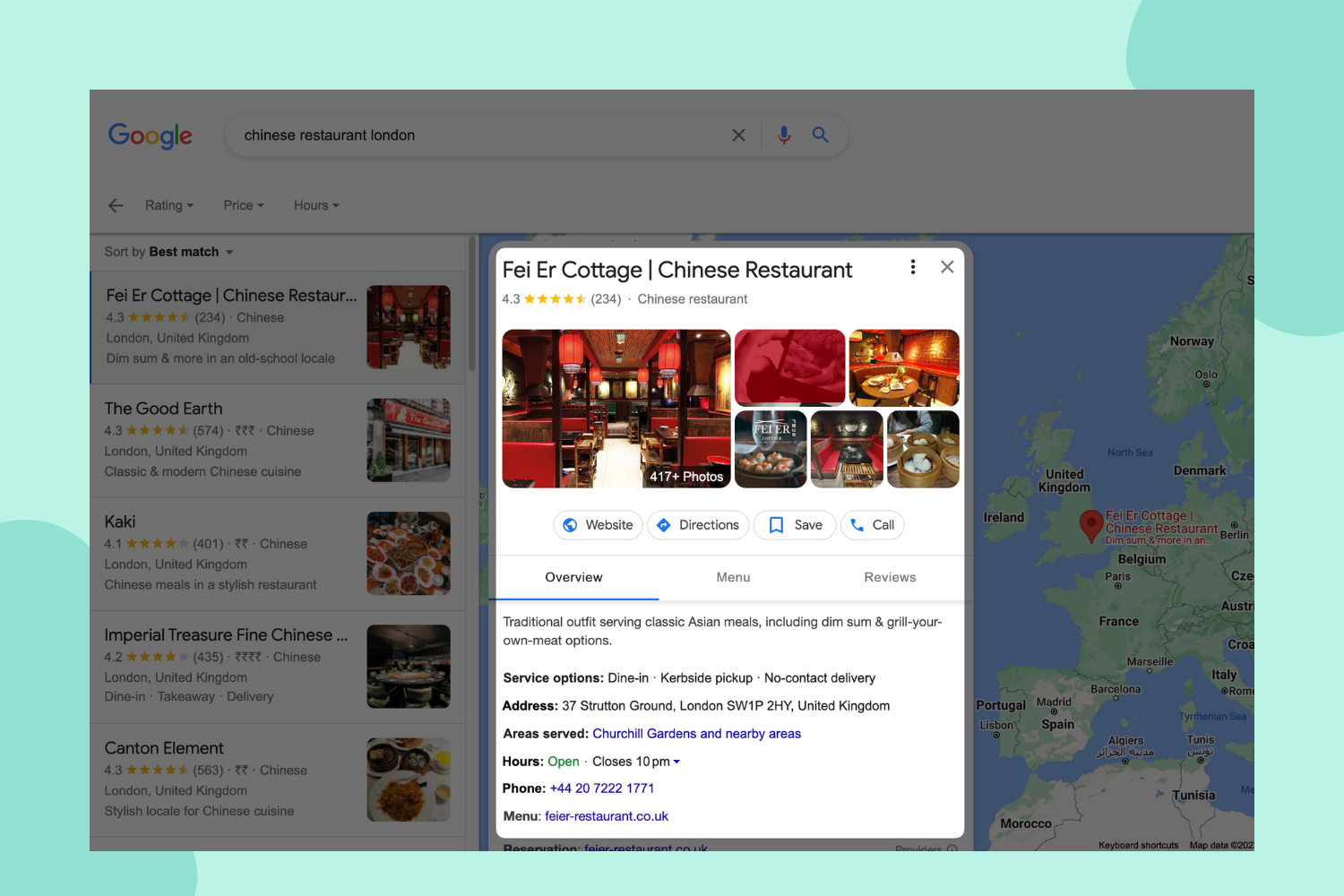Suppose you wish to improve your business’s visibility online in a particular local region, like your neighbourhood or city. In that case, you can turn to local SEO. Using the right strategy can help you build a presence quickly.
You can try to enter words you think to define your business on Google. If the result is a map and three listings, local SEO can help your business grow.
So if a user adds a city name, “near me” or not, Google can lead customers to your business based on your active location.
Local search has existed for a long time, but few businesses practice it, and now it is even more important as people have been searching for everything.
What is local SEO
Optimising your business for a specific local area is called local SEO.
For example, if you have a local business, say a pharmacy, cafe, or gym, you want to rank for relevant queries by a local audience. Local SEO is what is going to let people find you online and reach you offline.
Google uses three parameters to work out the best local results. These are:
- Prominence: This is based on how vital a business is to its competitor, according to Google
- Distance: When users search for a company, Google determines how far it is
- Relevance: This is met if you are closely related to the words of the searcher’s query.
As per Google,
- 30% of all mobile queries are location-based.
- 78% of these search for nearby services and visit under a day.
- 28% of location-based searches nearby end in a purchase.
Hence, if you use it to your advantage, Local SEO can bear fruits.
Benefits of local SEO
Manu businesses like small retail outlets, local agencies and restaurants rely on local consumers to grow, which makes local SEO important and following the best practices even more.
Improve your online visibility
The top five results of Google collect about 2/3rd of the clicks.
If your business doesn’t reach there, then you may go unnoticed by many. Therefore, you should use local SEO best practices to top the organic results.
Build trust
Customers ask themselves, “Which one should I go to?” and often assume that high-ranking searches and ones with good reviews are trustworthy businesses.
So the higher you rank, the more authentic you appear. This leads to increased credibility for your business.
Less expense on ads
Many businesses use ads to get website traffic, but that has an added cost. On the other hand, organic traffic gets the same or better results with negligible costs.
This is where local SEO shines by helping businesses keep getting organic traffic and reducing the need to burn money on paid ads.
When you optimise for local SEO, Google becomes your source for unpaid yet quality traffic. It helps you rank better and seem more relevant.
Improve generated revenue
More customers directly mean more sales. Local SEO is an efficient way of bringing more targeted traffic that is easier to convert and contributes to increasing business revenue.
How to improve your local SEO
While improving your Local SEO can seem daunting, we will break it down for you. You can follow these key strategies and improve your local search ranking:
Build SEO pages
Since you need to rank for relevant keywords, your website needs to have pages on target keywords such as “Best restaurant in [location]” or “Best digital marketing agency for e-commerce in [location]”.
You can also have query-based pages which act as a top of the funnel content, such as “Must-have sweets in [location]” or “Top 10 marketing agencies in [location]”.
When you add such pages to your website, you get to increase your chances of ranking, as now you have more targeted pages than before.
Build citations on online directories.
Websites like Yelp, Foursquare, MapQuest, and YellowPages, are online business directories. These sites mention your business name, address, and phone number (NAP) for others to find and contact you easily.
Being present on some of these websites helps search engines and interested users find your business easily. So not only does it help with visibility, but it’ll also boost your local SEO.
Your business listing should include the following basics:
- Name of your business
- Location of your office or store
- Contact number
- Link to your website (if you have one, recommended)
- Description of your business talking about your products and services
Do ensure that this information is consistent across all directories.

One crucial point you should remember is building citations is more about quality. So if you have sources on authoritative websites, it adds more weight to your online presence.
Get on Google My Business
Google My Business is the most crucial part of your local SEO strategy. Google lets you create free business listings. It’s one of the top points Google considers when it ranks businesses in local organic search.
When creating your listing, you need to provide the following:
- The complete and correct name of your business
- The address of your physical store or office
- The exact location of your business on the map
- The category your business belongs to
- Your phone number and website-related information
You have to verify once your listing goes live. Once done, move ahead and optimise Google My Business. To do this, make sure that you do the following:
- Upload images of your workspace
- Add relevant keywords in the title (should look natural)
- A description which tells everything about the business
- Add the hours of operation for your business
- Mention any additional category that may seem relevant to your business.
- If other contacts are available, you should add them too
- Ask past/existing users to share a review

You can also share regular updates on your Google My Business, making it easy for your users and Google to know if anything special is happening.
Get customer reviews
When you get good customer reviews, it pushes your listing ranking up. So while it does optimise your Google My Business presence, it also drives others to buy from you by building credibility.
Having plenty of positive reviews works wonders to boost your visibility and enhance your reputation. Then, keep collecting more authentic customer reviews for your business.
You can ask your customers for their contact details, such as their email and send them an email asking for a review on Google My Business or a relevant place.

Google’s algorithm rewards business listings with higher rankings that have many positive organic reviews.
Conclusion
I hope this blog helped you jumpstart your journey to ace local SEO. You can move ahead with a better understanding of local SEO and concentrate on points that improve your business’s digital footprint.


No Comments
Leave a comment Cancel